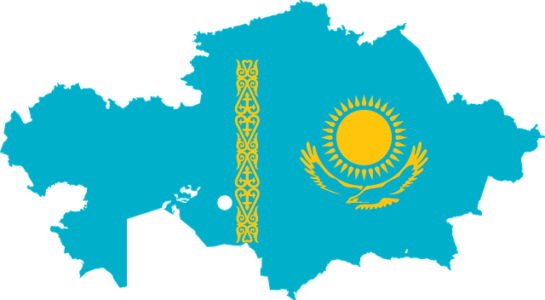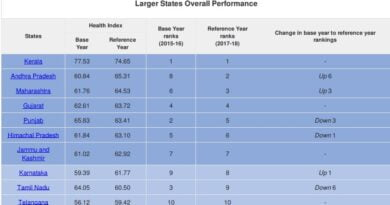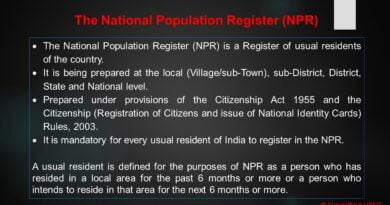India-Kazakhstan relations
Relations between India and Kazakhstan are ancient and historical going back to more than 2000 years. There has been a constant and regular flow of trade in goods and, more importantly, exchange of ideas and cultural influences. The flow of Buddhism from India to Central Asia and Sufi ideas from Central Asia to India are two such examples. The first President Nursultan Nazarbayev visited India in February 1992. Thereafter, he has visited India in 1993, 1996, 2002 and 2009.
Contents
India-Kazakhstan relations
- India was one of the first countries to recognize the independence of Kazakhstan, which was on December 16, 1991. Diplomatic relations were established in February 1992.
- India and Kazakhstan have been strategic partners since 2009.
- Both countries actively cooperate under the aegis of multilateral fora including CICA (Conference on Interaction and Confidence-Building Measures in Asia), Shanghai Cooperation Organisation (SCO) and the UN organisations. India has been a consistent supporter of Kazakhstan’s initiative on CICA and is actively participating in the process.
- The India-Kazakhstan Inter-Governmental Commission (IGC) established in 1993 is the apex bilateral institutional mechanism for developing trade, economic, scientific, technological, industrial and cultural cooperation between the two countries.
- Several Joint Working Groups (JWGs) have been established in areas including counter-terrorism, trade & economic cooperation, defence & military technical cooperation, information technology, hydrocarbons and textiles.
- The Indo-Kazakh Defence Cooperation is carried out under the framework of an agreement on ‘Defence and Military Technical cooperation’ signed in July 2015. The agreement includes various areas including conduct of joint training, exercises, military-technical cooperation and UN peacekeeping.
- Kazakhstan is India’s largest trade and investment partner in Central Asia. In 2019, total bilateral trade between India and Kazakhstan amounted to $1.56 billion.
- Kazakhstan was one of the first countries with which India launched civil nuclear cooperation through a uranium purchase contract.
- India provides capacity building assistance to Kazakhstan in various specialised fields under Indian Technical and Economic Cooperation (ITEC) programme sponsored by the ministry of external affairs.
- Since February 2018, Indian has extended e-visa facility to Kazakh citizens.
Cultural relations
- India and Kazakhstan enjoy close cultural relations that manifest in popularity of yoga, Indian films, dance and music in Kazakhstan. Swami Vivekananda Cultural Centre in Astana is engaged in various cultural activities, including conducting of yoga, dance and music classes; celebration of Indian festivals.
- India provides scholarships in various disciplines under the ICCR Scholarship programmes for students from Kazakhstan.
- There are 15 slots allocated to Kazakhstan under General Scholarship Scheme under ICCR. The programme is open to all eligible participants from Kazakhstan. The courses offered including
- Agriculture, Food and Fertilizers,
- Artificial Intelligence,
- Banking, Finance, Accounts and Audit,
- Cyber Technologies,
- Education,
- Engineering and Technology,
- Hindi Language,
- Environmental and Climatic Changes,
- Government Function,
- health and Yoga,
- Human Resource Development and Planning etc. which are conducted by reputed institutions in India.
- While mission nominates the candidates through online portal, the final selection is done by the University/Institute. The Study in India programme by the Govt. of India under the aegis of the Ministry of Human Resources Development in collaboration with the Ministry of External Affairs being provided in CIS countries including Kazakhstan. The programme involves partnership with 100 premier education institutes in India including IITs, NITs, IIMs and premiere private colleges of India.
Indian community
The size of the Indian community is about 5,900 in Kazakhstan. Out of this, about 3,400 are Indian students, about 2,280 are construction workers and the rest are in various professional fields.
Key Highlights of INDIA-KAZAKHSTAN relation in Defence & Civil Nuclear cooperation: Defence Cooperation:
- Defence cooperation is an essential pillar of our strategic partnership with Kazakhstan (bilateral relations enhanced to a strategic partnership in 2009).
- The IndoKazakh Defence Cooperation is carried out under the framework of an agreement on ‘Defence and Military-Technical Cooperation’ signed in July 2015.
- The new agreement includes the conduct of joint training, exercises, military-technical cooperation, UN peacekeeping and exchange of intelligence.
- Kazakh Armed Forces Unit underwent training on peacekeeping operations in India in AprilMay 2018 for deployment under the command of an Indian Battalion at UNIFIL, Lebanon.
Civil Nuclear Cooperation:
- India and Kazakhstan signed an agreement on April 2009 for the supply of 2,100 tonnes of Uranium to India up to 2014.
- An Agreement on Cooperation in the Field of Peaceful Uses of Atomic Energy was signed during the visit of PM Manmohan Singh to Kazakhstan in April 2011.
- A New five year Purchase Agreement for the purchase of 5000 tonnes of Uranium was signed during the visit of PM Narendra Modi to Astana on July 7-8, 2015.The supplies are being made regularly as per contract schedule.
- Kazakhstan supported India in obtaining India-specific exemption to allow civil nuclear cooperation with Nuclear Suppliers Group (NSG) countries in 2008. It also supported India’s membership of NSG at the Plenary Session in Seoul on June 2016.
Significance of Kazakhstan to India:
- There are three factors which make Kazakhstan important for India. First, its geo-strategic location; second, its economic potential, especially in terms of energy resources; and third, its multi-ethnic and secular structure.
- Kazakhstan’s geo-political existence between Russia and Asia, along with long borders with China, makes it a country of great strategic importance.
- Kazakhstan lies to the northeast of the Caspian Sea, bordered by the Russian Federation to the north, China to the east, and Kyrgyzstan, Turkmenistan and Uzbekistan to the south.
- Kazakhstan can also help India achieve a geostrategic rebalancing with China. India’s foremost objective is countering the rapid economic inroads China is making in the region through the One Belt One Road (OBOR) initiative.
- India seeks to achieve this with the competing North-South Transport Corridor (NSTC).
- NSTC is a multi-modal transportation established on 12th September 2000 in St. Petersburg, by Iran, Russia and India for the purpose of promoting transportation cooperation among the Member States. It has been expanded to include eleven new members.
- Kazakhstan has become one of the key activists in the field of global nuclear security, and has achieved a number of results in peacekeeping policies and the resolution of conflicts around Nagorno-Karabakh, Iran, Ukraine and Syria.
Way Forward
- Being part of central Asia, Kazakhstan is strategically important for India. India needs to use its instrument of economic leverages more efficiently to build closer ties with Central Asia.
- At its core, the heightened India-Kazakhstan relationship allows New Delhi to bypass Pakistan and the highly unstable Afghanistan to reach a resource-rich Nur-Sultan, complementing India’s developing economy.
Source: Briefs on Foreign Relations
Also read
Discover more from Simplified UPSC
Subscribe to get the latest posts sent to your email.



